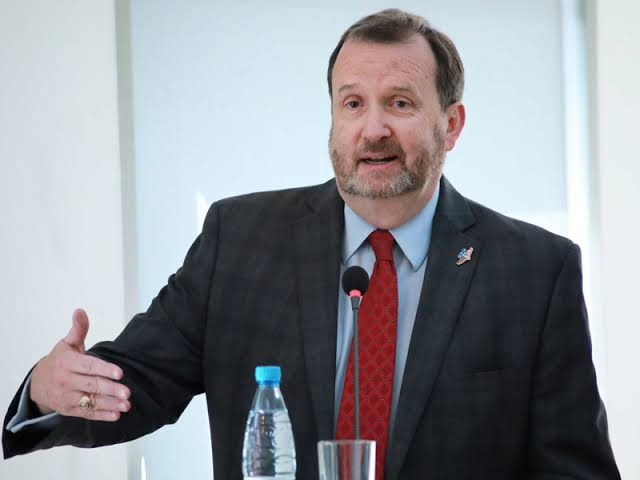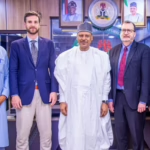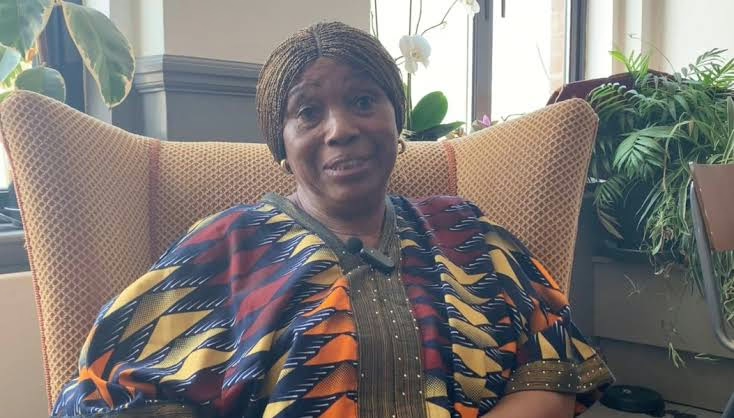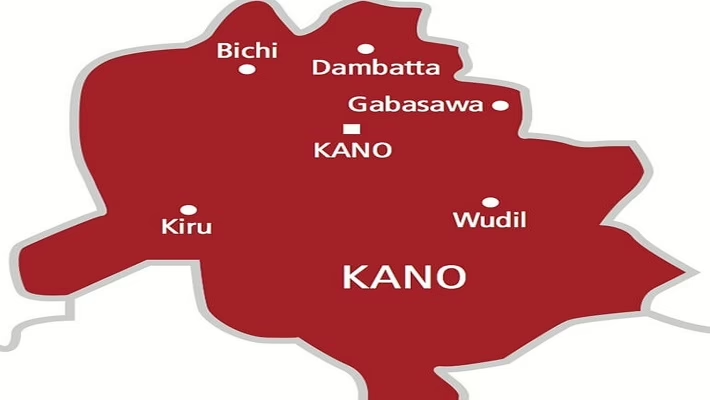The United States Ambassador to Nigeria, David Greene Mills, has revealed that trade between Nigeria and the U.S. reached $13 billion in 2024, reflecting the growing strength of economic relations between the two countries.
Speaking at the Lagos Business School on Wednesday, Ambassador Mills noted that the increase in bilateral trade was a testament to the deepening commercial ties and investor confidence. He added that U.S. foreign direct investment in Nigeria also rose to $6.5 billion—representing a 5.5 percent increase from the previous year.
Delivering his address during a forum themed “Toward a Robust U.S.-Nigeria Commercial and Investment Partnership,” Mills outlined a strategic vision centered on private sector leadership, regulatory reforms, and enhanced cooperation between both nations.
He commended the Lagos Business School for its contributions to intellectual and entrepreneurial development, particularly lauding its relocation from Victoria Island to the Lekki corridor, which he described as a forward-thinking move. Citing recent visits to the Lagos Free Zone and American firms in Alaro City, Mills pointed to a growing presence of U.S. businesses in Nigeria. Companies such as Kellogg’s, Colgate-Palmolive, and Caterpillar are not only expanding their production capabilities but are also contributing to innovation and job creation.
At the core of his remarks was the U.S. State Department’s Commercial Diplomacy Strategy for Sub-Saharan Africa, which was unveiled earlier this year at the Africa CEO Forum in Abidjan. The new policy prioritizes trade-led development over aid dependency and places economic partnerships at the forefront of U.S. foreign engagement in the region. Mills emphasized Nigeria’s pivotal role as the most populous country in Africa and the second-largest U.S. trading partner in Sub-Saharan Africa.
He also highlighted the strong cultural and educational bonds shared by the two countries. Over 20,000 Nigerian students are currently studying in the United States—more than from any other African nation—while the Nigerian diaspora in the U.S., estimated at over 750,000, is the largest African immigrant group and continues to play a crucial role in fostering cross-cultural and economic ties.
To further consolidate this partnership, Mills announced plans for the formal launch of the U.S.-Nigeria Commercial and Investment Partnership (CIP), a five-year initiative focused on key sectors including agriculture, digital technology, and infrastructure. The agreement is expected to bring together stakeholders from both countries to address regulatory challenges and enhance investment opportunities.
He also acknowledged the role of the U.S. interagency mission in Nigeria, comprising officials from various departments including Commerce, Agriculture, and the Development Finance Corporation. In 2024 alone, the mission facilitated over 7,000 business-to-business engagements and hosted high-level trade missions to open up new markets and support American commercial interests in Nigeria.
Currently, more than 80 U.S. companies are operating in Nigeria, and American venture capital accounts for over 60 percent of startup funding in the country. Mills cited firms like Flutterwave, Andela, and Esusu as examples of successful ventures that highlight the power of collaboration in driving innovation and entrepreneurship.
In his closing remarks, Ambassador Mills encouraged U.S. companies to explore investment opportunities in Nigeria and called on Nigerian authorities to implement reforms that foster a more conducive business environment. He also urged Nigerian youth to take the lead in shaping the country’s economic future through innovation and a global perspective.
“The United States remains committed to deepening our trade relationship with Nigeria,” he said, “and we will continue to work closely with our partners to unlock the full potential of this commercial partnership for the benefit of both nations.”











Leave a Reply